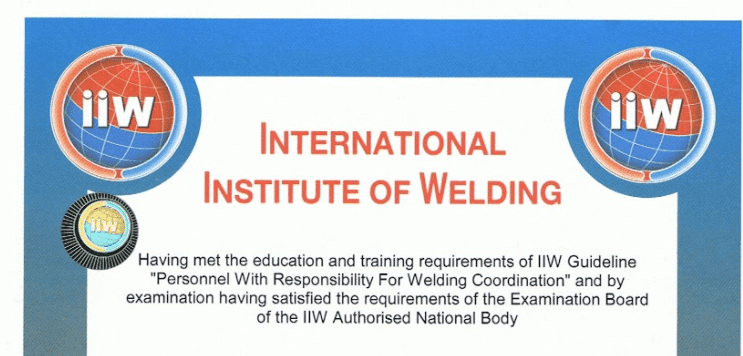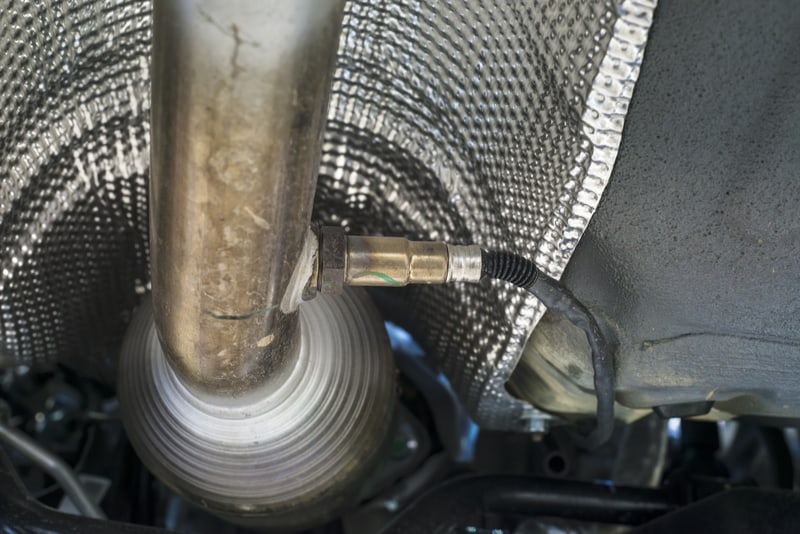“This post contains affiliate links, and I will be compensated if you make a purchase after clicking on my links.”
From amateur welders to the experienced, if welding is calling to you as a career, you will need your welding certification. This simple document proves that you can provide quality work. But the question remains if all welding certifications are equal.
Certifications depend on what you weld, but some organizations are proven to be better than others. The American Welding Society’s Certified Welder (CW) program is world-recognized as one of the best welding certifications to have.
There are other certifications desired by employers, and even degrees in welding from accredited institutions are sought after. It is up to you how you want your welding skills to be known. Read on to learn more about welding certifications and which are best to have.
The Best Certifications to Have
There are many accredited programs out there for your welding certification. As for which programs are the best, that question is up in the air, though the AWS’s CW program is top-notch and can be considered one of the most desirable. Though there are other programs out there that more experienced welders may want to explore:
- AWS CW: The Certified Welder program is worth mentioning in depth because of what it covers. This certification proves you can work with structural steel, pipelines, and sheet metal industry, among others. Most importantly, CW certification is necessary for most employers.
- AWS D1.1: The D1.1 structural welding certification is one of the most impressive certifications to have. This certification is often for entry-level welders and is for structural steel welding specifically. Despite being a narrower certification, it is well worth attaining alongside others.
- 6G Pipe Welding: The 6G pipe welding certification is notoriously tough, testing your welding ability in every pipe position possible. This certification is very desired and is reserved for some of the best welders out there. On average, those with this certification are paid more.
- Restricted Pipe Welding: Restricted pipe welding certifications are possibly the most difficult to earn. Your test would involve blocked vision and narrow areas to work in. But because of the severity of this test, you could see yourself being highly valued by employers.
Your welding ability helps to determine which program to go far. A good place to start is with the CW certification, which is for most welders who want to begin a career in the field. For career advancement and skill-building, you should probably go for other certifications as well, especially in specific fields such as pipe-welding or sheet metal.
Least Desired Certifications
Some certifications can be considered almost useless to have. While any certification has its benefits, wasting time and money training and getting certified for something that will have little use is never a good idea. Below are some of the lower-level certifications that are not sought after:
- 1G Welding Certification: Employers do not really desire this certification due to the easiness of the exam. It tests a single position with a flat plate. Since it only covers something so simple, it is not often considered worth it, especially for employers.
- 1G Pipe Welding Certification: Like most 1G certifications from the AWS, this is not a sought after certification. It tests a pipe in a single, basic position and is not as desirable as a more advanced certification. You are better off learning other positions and going for a more advanced pipe welding certification.
Welding certifications are more desirable when they require more than just simple welds. It is important to increase your skillset or focus on certifications covering a broader range of what you know. This rule will save you time and stress.
Types of Welding Certifications
Welding certifications are commonly held in two different ways, and it depends on how you handle root openings. There is the backing bar route that tends to cover structural welding or open root welding, which is more in line with pipe welding.
There are benefits to both sides, but it depends on which fields you want to explore. As stated, open root weld certifications are typically how pipe welding is handled. If you have not welded in this way, it is suggested to use a backing bar. However, open root welding is worth learning since it tests for many skills that can be desirable.
If you are more experienced with structural welding, it is not a bad idea to certify with a backing bar. It is more common for structural welders to use backing bars for their root work, and it would not affect your chances of finding employment within a structural welding field.
Is a Welding Certification Worth it?
Welding certifications are important parts of a welder’s career. They help to prove that your work is trustworthy by the AWS’s or other accredited institutions’ standards. Some welders wonder if the time and cost is worth it, but most professional welders would agree that is it. Some reasons certification might be right for you can be found below:
- Career Growth: The primary benefit of a welding certification is that your skills will be known by employers. As your skills grow, and as you pass more advanced certifications, you will be more desirable. This can mean higher pay for you and more trust with customers and employers alike.
- It Is The Law: Many states require welders to be certified before seeking full time employment. There can even be legal issues for uncertified, private welders. It is best to research what the law is in your area, and assume that a certification is the best way to avoid trouble with your welding work.
- Training: The AWS offers training to those who want to become certified welders. The CW program is an amazing tool for those who want to advance their welding. Programs like this are some of the biggest incentives for welders to become certified, as by the end of the program you are certified anyway.
For most welders, certification is not something to skip out on. If you want to follow welding as a career, proper training and certification is a must. This is also true for legal reasons, where certifications in some places are required for you to practice. Consider researching the AWS and what programs may be best for you.
How AWS Welding Certification Exam Is Conducted
Welding certification exams are conducted by various accredited welders, typically through the AWS. Their exams may vary, but there are many standards that these certifiers will adhere to. These high standards are what sets the AWS apart from other organizations.
While being tested you are typically always under watch. This is done for safety purposes and to see how you handle your equipment. You will be asked to weld the metals given to you by the inspector, and you will receive some direction as to how they want it cut.
Your inspector will then test your materials, which involves a quality examination or even a bend test to determine if your work is up to standard. Since the AWS tests by their codes, if you meet these standards, you have gotten your certification.
These rigorous exams are an important aspect of welding certification. The certified welder program is one of the most popular due to trust in the AWS. Their codes and standards have been the guide for most welders in the United States for years, so it is their certifications you should keep your eye out for most.
Conclusion
The American Welding Society typically runs the best welding certifications. The certified welder program is your best bet in getting started with a welding career since it covers a broad range of welding options. Other certifications are important too, as they are more advanced and desirable.
Sources:
Certification | American Welding Society (aws.org)
The AWS D1.1 1G Welder Qualification Test | Welding Answers (weldinganswers.com)
Welder Certifications and Welder Qualification Tests! | GoWelding.org
Welding Certification Test Kits | Hypermax (hypermaxonline.com)




